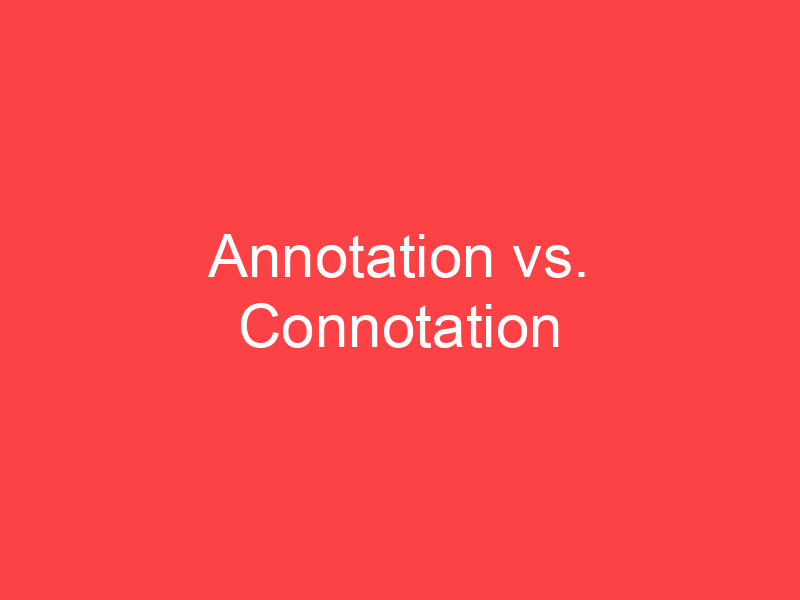Main Difference
The main difference between Annotation and Connotation is that the Annotation is a metadata and Connotation is a cultural or emotional association that some word or phrase carries, in addition to the word’s or phrase’s explicit or literal meaning.
-
Annotation
An annotation is a metadatum (e.g. a post, explanation, markup) attached to location or other data.
-
Connotation
A connotation is a commonly understood cultural or emotional association that some word or phrase carries, in addition to its explicit or literal meaning, which is its denotation.
A connotation is frequently described as either positive or negative, with regard to its pleasing or displeasing emotional connection. For example, a stubborn person may be described as being either strong-willed or pig-headed; although these have the same literal meaning (stubborn), strong-willed connotes admiration for the level of someone’s will (a positive connotation), while pig-headed connotes frustration in dealing with someone (a negative connotation).
-
Annotation (noun)
a critical or explanatory commentary or analysis
-
Annotation (noun)
a comment added to a text
-
Annotation (noun)
the process of writing such comment or commentary
-
Annotation (noun)
metadata added to a document or program
-
Annotation (noun)
information relating to the genetic structure of sequences of bases
-
Connotation (noun)
A meaning of a word or phrase that is suggested or implied, as opposed to a denotation, or literal meaning. A characteristic of words or phrases, or of the contexts that words and phrases are used in.
“The connotations of the phrase “you are a dog” are that you are physically unattractive or morally reprehensible, not that you are a canine.”
-
Connotation (noun)
The attribute or aggregate of attributes connoted by a term, contrasted with denotation.
“The two expressions “the morning star” and “the evening star” have different connotations but the same denotation (i.e. the planet Venus).”

